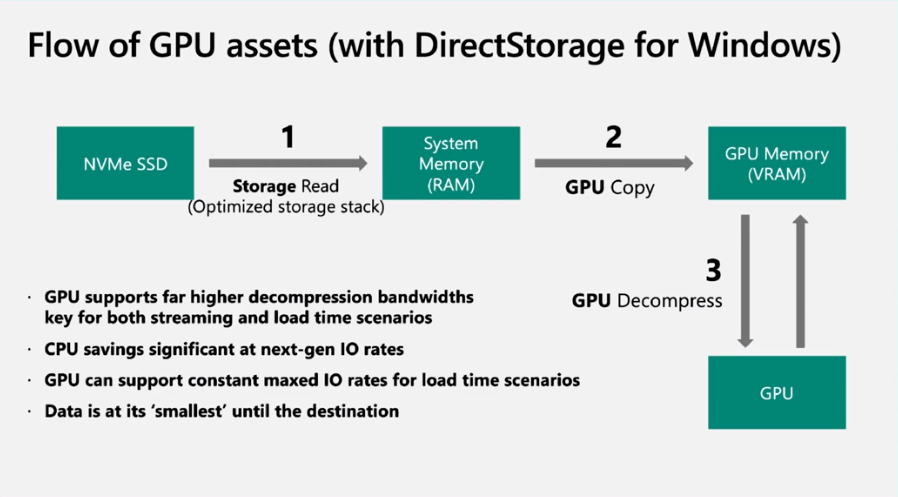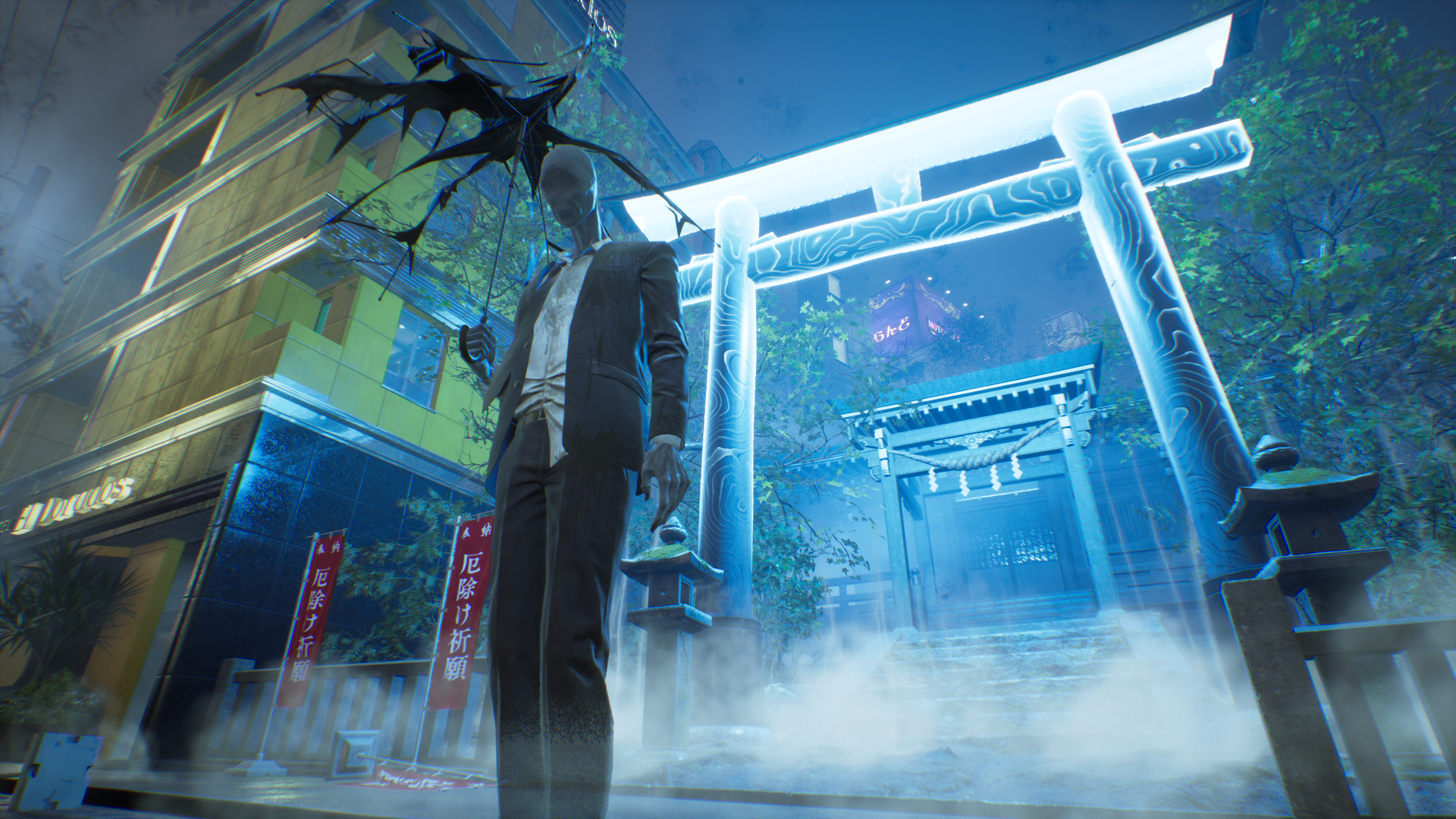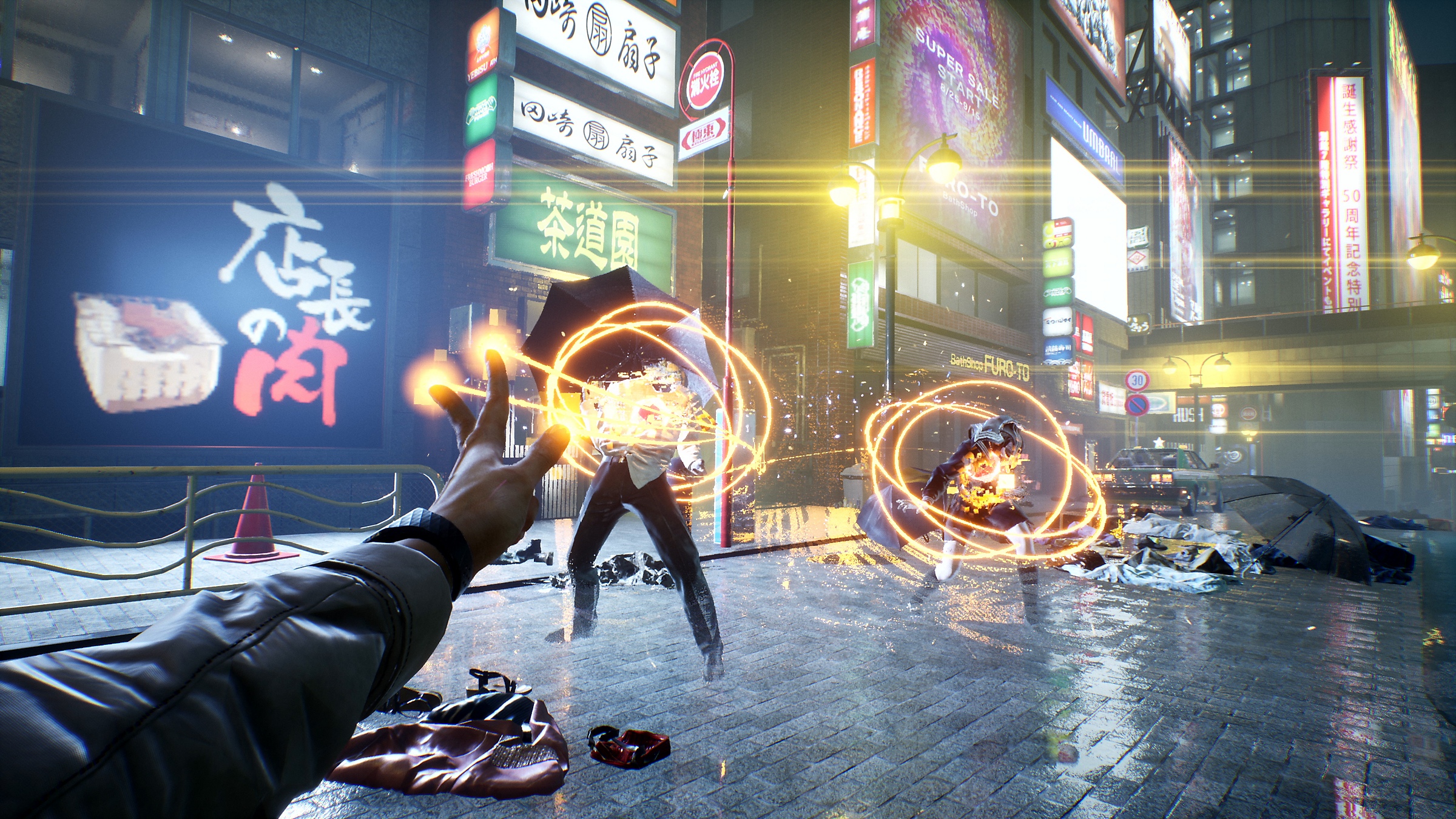Microsoft is finally bringing its DirectStorage API to Windows 10 and 11, which should (eventually) boost loading speeds for PC gamers.
The Redmond, Washington-based company first announced DirectStorage would make the leap from its Xbox Series X and S consoles to PC in September 2020, and later reiterated that DirectStorage would come to Windows 11 when it unveiled the new OS in 2021. In a new blog post published March 14th, Microsoft says Windows games can ship with DirectStorage “starting today.”
Unfortunately, that doesn’t mean you’ll actually be able to play them today.
All right, let’s break this thing down starting with what DirectStorage is and how it works, followed by availability, and finally why you won’t be able to try it right away.
What is DirectStorage and how does it work?

How DirectStorage works | Image credit: Microsoft
The DirectStorage API is a public software development kit (SDK) that allows graphics processing units (GPUs) to communicate directly with fast NVMe solid-state drives (SSDs) rather than relying on the CPU to decompress data coming out of storage.
Typically, when games load content — such as the world or level you’re playing in — that data needs to be pulled off of a drive, decompressed by the CPU and fed into memory where the GPU can then use it to render what players see on screen.
DirectStorage works around this by feeding the compressed data straight to the GPU, benefitting from several speed boosts. First, it delivers the smaller compressed data to the GPU, benefitting from the faster transfer speeds of the SSD and smaller file size. Then it benefits from the GPU’s higher decompression bandwidths for better load time scenarios.
In short, it should mean much faster load times for players, which is great news. One of the main benefits of the Xbox Series X/S consoles was their faster load times, which is partially thanks to DirectStorage (the consoles make use of custom NVMe SSDs, hardware-accelerated decompression blocks, and Sampler Feedback Streaming to boost load times as well). It’ll be interesting to see how PC load times compare once DirectStorage is widely available.
DirectStorage availability
The good news about DirectStorage is it will be available to both Windows 10 and 11 PCs, although Microsoft recommends Windows 11 because it “has the latest storage optimizations built in and is [Microsoft’s] recommended path for gaming.”
Moreover, Microsoft suggests in the blog post that DirectStorage may benefit storage types other than NVMe SSDs, but Microsoft recommends using them to get the most out of DirectStorage.
As for the bad news, well, not many games support DirectStorage at the moment. Upcoming game Forspoken will be one of the first to showcase the tech, but it just got delayed and won’t arrive until October 11th, 2022.
And, as The Verge points out, PC gamers still use a variety of storage tech for games. Many haven’t upgraded to faster NVMe SSD storage, while with new devices like Valve’s Steam Deck, developers may need to target potentially much slower storage mediums like UHS-I microSD cards.
Most people I know — including myself — have a hodgepodge of storage including SSDs and hard drives. I went this route with my PC due to the higher costs of SSD storage — I started with a small SSD for Windows and apps, plus a cheap 1TB hard drive for large storage needs like games and media. Over the years, I’ve added another hard drive and an SSD that I use specifically for multiplayer games I play regularly so I can get faster load times — I still use my hard drives to store single-player games where I’m more willing to wait.
If DirectStorage brings a significant boost to load times, it may spur more PC gamers to upgrade to NVMe SSD storage to maximize the benefit. However, with ongoing supply shortages and skyrocketing prices, I imagine many more users will end up priced out of faster load times.













